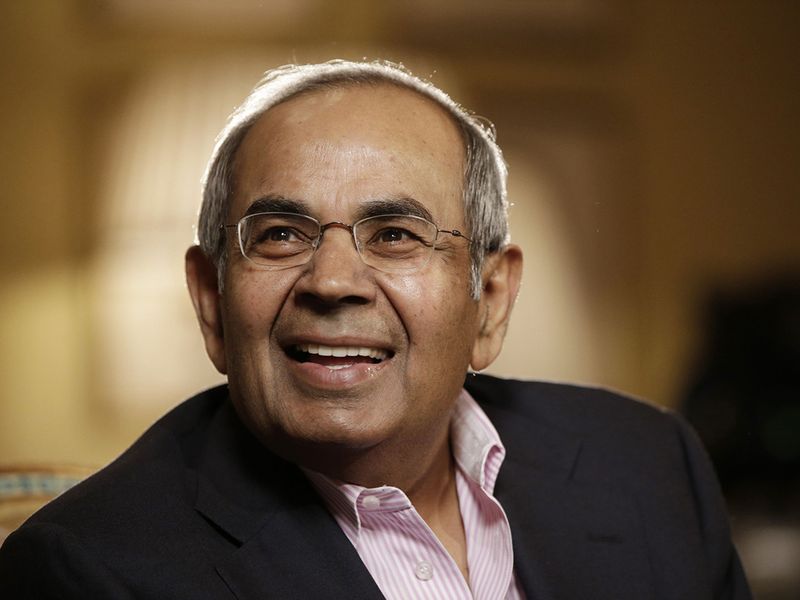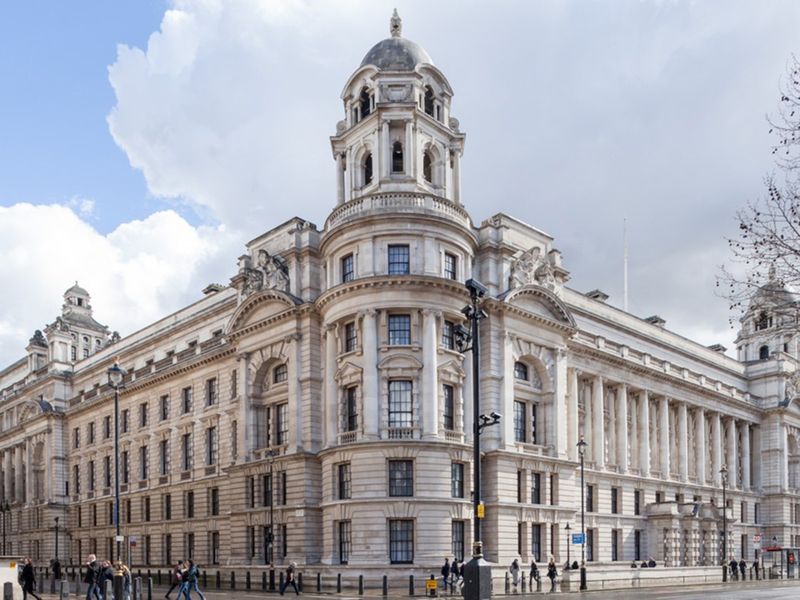|
"Our group, which is more than 108 years old, has seen and overcome multiple recessionary cycles successfully," said Gopichand Hinduja.
Dubai: For the $70 billion Hinduja Group, geography matters. Starting off in the Middle East a good 100 plus years ago, the Mumbai-headquartered conglomerate has worked its way through markets, borders and continents.
And all of which has proved a sound strategy for the Group whose interests straddle energy (Gulf Oil), transport (Ashok Leyland) and banking (IndusInd) through the years. Not to mention some of the other sectors, including fintech, the Group has ventured into in more recent times. Of course, there are the real estate interests, including some of the choicest properties that one could conceive of in Central London.
But can geography help again when the global economy is once again being threatened by a possible recession? In an interview, G. P. Hinduja, Chairman, numbers the threats and the cures the Group will call on as countermeasures.
With the recession biting the UK economy - and Europe likely to feel the same - will the Group be making any changes in its 2023/medium-term investment or operational plans? Or would you stick with the same approaches when it comes to geography?
I am not an economist. I prefer to trust my instincts. The Brexit aftermath, the Corona pandemic, the Russia-Ukraine conflict, etc, have all contributed to the setback in the UK economy.
We have seen how the Swiss re-established the relationship with the European Union. With past experience of handling the pandemic, the new manifestations will be better managed. The UK will get the economy back on track.
Our group, which is more than 108 years old, has seen and overcome multiple recessionary cycles successfully. We are very selective in picking our sectors/companies. We have long-term strategies in place for various businesses.
However to surmount the many unfurling uncertainties in this world, adapting to the situation is a necessity. With this innate flexibility, we have side-stepped the blips.

"We have always stayed with and ahead of the curve, be it the communication revolution, the IT revolution, and now, the digital revolution," says Hinduja.
And in terms of geographic priority?
Historically, India has been and will remain, a focus area for us.
With UAE’s new reforms and policy announcements, the makings of the new ‘Capital of Global Wealth’ is evident. In line with our founding principle – think local, act global - we are well invested here in the UAE. We believe the Asia-Pac region, especially anchored from UAE, will be the next frontier of growth, followed by Africa.
Do you think the Group will push harder into ‘defensive’ sectors/assets if the recession proves long and deep?
With steady returns, defensive sectors remain an integral part of our portfolio. Indusind bank which has significant retail/consumer bank business has maintained its growth rates in trying times.
Several of our growth engines - for example, renewable energy and green mobility - are tied to stable consumption sectors and are resilient during such times. In our case, we have been consistently tracking a robust growth trajectory.
As one of the premier investors in London real estate, do you see new openings for more buys? Or do you need to see some serious price corrections before you make a move?
Historically, super prime and heritage properties in Central London have been our focus. With our deep expertise and significant experience in restoration and re-development of the Carlton Terrace and the iconic OWO (The Old War Office) properties, we have succeeded in recreating the pristine historical elegance with the right blend of contemporary bespoke luxury.

The Hinduja Group, in partnership with a Spanish industrial company, has acquired UK's iconic Old War Office building that was once occupied by the country's war-time Prime Minister Winston Churchill.
Super-prime and heritage properties are unique masterpieces. They have never witnessed significant price corrections.
Your latest mixed use prestige development in London - what’s the update on the residential units? Will you launch sales irrespective of how the wider market shapes up in 23?
We launched pre-completion sales some months ago. The response has been staggering. However, we are highly selective and there is a compliance-oriented process that precedes the choice of client and transaction. We are also phasing the sales process to ensure we achieve various price points especially, when the building is completed and attracts global attention.
Our client-base is not UK-Centric. Many buyers from the US, the GCC and Asia have approached us. After all, the OWO-Raffles is a very unique branded residence and hotel. Thus it enjoys an iconic status in Central London.
Further, the current exchange rate presents a rare opportunity to own a global top-ranking residential property as a home.
Ashok Leyland and its EV strategy - do you reckon it’s end-user markets like India and elsewhere are ready for EV?
Climate change and sustainability are firmly rooted in the awareness of the governments and people at large. The rate of adoption of new technologies is driven by government polices for building the eco-system, such as, the charging infrastructure, green fuels availability, green funds for technology development, green fuel production, vendor development, EV leasing, etc.
This is the new paradigm.
The transition to EVs has already started, particularly in the two-/three-wheeler segments where we are not present. Moving to bus and light commercial vehicles will pick up speed as the supporting infrastructure of charging and green fuels like hydrogen replace conventional fuels.
Ashok Leyland is adopting creative strategies such as providing Mobility as a Service (in other words, pay-per-km) to offset the initial high capital cost of the acquisition of EVs for its customers. Medium and heavy commercial vehicles will perhaps be the last ones to make this transition.
Courtesy: Gulf News |
